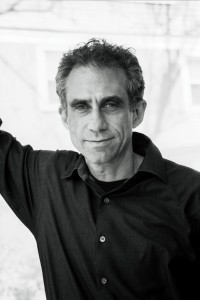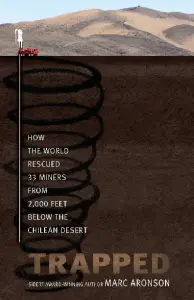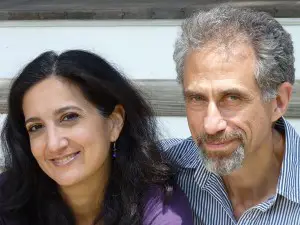 Marc Aronson is an award-winning American author of young adult literature. He was born in 1950 in Manhattan, New York . In this interview, Marc talks about his books, his love for history, reading and writing.
Marc Aronson is an award-winning American author of young adult literature. He was born in 1950 in Manhattan, New York . In this interview, Marc talks about his books, his love for history, reading and writing.
Voicu Mihnea Simandan: You have been a story writer for most of your life. How has your writing evolved over time?
Marc Aronson: I have had an interesting passage into writing. While I was in graduate school getting a Ph.D. in American History (focusing on the history of book publishing), I got a job working in children’s book publishing. I started out as an editor of nonfiction books about the countries of the world aimed at young readers from about 11-14. But since I was in the academy, I was in touch with many experts doing new and pathbreaking research. I began to see my role as learning how to bring those fascinating new ideas to young people. At first that was through editing texts written by others, then I began to develop my own feel for the structure and sound of a good book for my readership. Early in my career I mainly saw manuscripts and reviews, and met librarians. But in recent years I have gone to more and more schools to meet young people and their teachers. Those experiences, combined with having two boys of my own, helped me get a better sense of my readers and their interests.
VMS: Where did the ideas for For Boys Only: The Biggest, Baddest Book Ever (2007) come from?
MA: My co-author HP Newquist and I realized that most nonfiction books for young readers focus on some person or topic, and try to add some extra bits to keep the reader interested. We decided to create a book that was entirely devoted to whatever we found interesting, and thought would appeal to readers. We had a great time doing it.
 VMS: Many of your books deal with (contemporary) historical events. Trapped: How the World Rescued 33 Miners from 2,00 Feet Below the Chilean Desert (2011) comes to mind. Please comment
VMS: Many of your books deal with (contemporary) historical events. Trapped: How the World Rescued 33 Miners from 2,00 Feet Below the Chilean Desert (2011) comes to mind. Please comment
MA: My feeling is that young readers often miss out – books for them are often about the same old historical events, not the world around them. I believe the liveliest minds deserve the freshest information. News is one thing, but a book that goes beyond today’s headline to explore story – but one that has unfolded in front of young people’s eyes – has a lot to offer. I am working right now on a book with Dr. Lee Berger, whose discovery of Sediba, a previously unknown hominid from 1.97 million years ago, was just announced. Again, I want young people to participate in the excitement of new science as it happens – even if that means what we know so far will be challenged or expanded (as it surely will). That is the necessary approach for the internet generation – they have access to bits from everywhere – so we as adult authors need to keep up, and help them make sense of unfolding ideas, insights, and information.
VMS: How much research goes into your books?
MA: It depends on the book. For example, in Trapped I had to read everything published both during the rescue and after – since, of course, we did not know anything about the miners’ experiences below ground until they were rescued. When I work with an expert, such as Dr. Berger, I need to know enough to be a good partner, but I can lean on his expertise. For my books aimed at teenagers I do very extensive research – I need to know not only the basics but all of the best academic studies, so I can feel confident in sharing conflicts and controversies with my readers. I have a book coming out next spring about J. Edgar Hoover, the longtime head of the FBI in America, which has taken me about 3 years to research, write, and rewrite.
VMS: You have published middle grade and young adult books, plus books for grown-ups. Do you employ similar skills when writing books targeted for an older readership?
MA: The skills are related in that you must engage the reader and be true to the information you know. I also work very hard to select the best images and am in close contact with the book designer to make sure they are placed in the best spots. But in middle grade the images are often in color and the text is shorter.
 VMS: Some people believe that children no longer read and, with the availability of affordable e-readers, many believe that, sooner or later, children will no longer want to hold books in their hands. Please comment.
VMS: Some people believe that children no longer read and, with the availability of affordable e-readers, many believe that, sooner or later, children will no longer want to hold books in their hands. Please comment.
MA: I am certain that more young people, and a higher percentage of young people, read today than ever before. That is because for much of history every country had large sections of the population which did not read at all, and were expected to merely do some form of manual labor. Now we all know that not only all boys, but all girls, must be able to read – that is totally new. We also have to be careful about what we mean by reading – only fiction? Only books? Or books, websites, magazines, blogs, etc. I think ebooks will evolve into a fascinating new form of expression. Print, like theater or radio will continue as its own form, even as film and tv arose.
VMS: You have an excellent website . How important is it for writers these days to be “out there” on the Internet, interacting with their fans?
MA: I cannot see why any writer would neglect to have a site.
VMS: You’ve been on quite a few school visits. What were some of the highlights of these visits?
MA: A 4th grader in Houston noticed something in one of my books that I had missed, and when I checked with the archaeologist who I was working with, she was right. In challenging me she proved my point – young people are fully capable of being bright, insightful, fresh, and outspoken. I loved it.
VMS: Do you still read children’s books and young adult fiction?
MA: I read children’s books, young adult fiction and nonfiction. I was just the chair of the jury that selected the National Book Award for young people here in America, which meant we read some 270 2011 books.
VMS: What book are you working on right now?
MA: The book with Dr. Berger, which comes out next fall, and the one about J. Edgar Hoover: Master of Deceit: J. Edgar Hoover and America in the Age of Lies – which comes out next spring.
 VMS: Is it true that one of your books will be translated in Thai and published in Thailand?
VMS: Is it true that one of your books will be translated in Thai and published in Thailand?
MA: Sugar Changed the World, which I co-wrote with my wife Marina Budhos, is slated to be published in Thailand.
VMS: What is your writing routine?
MA: To be honest I am stealing time from writing now, so should get back to that. Basically I wake up early.
VMS: What advice would you give to aspiring writers?
MA: Read everything, practice writing, share your work with others, and be willing to revise again and again.
VMS: Thank you for your time.
MA: Thank you for approaching me. I hope we can come to Thailand soon. I edited a book on Thailand years ago and would love to visit, meet young people, and share ideas.
Listen to an interview with Dr. Marc Aronson
Voicu Mihnea Simandan
Bangkok, Thailand
October 31, 2011
